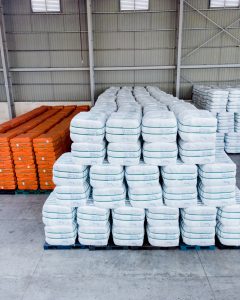The global mattress industry has seen remarkable growth and evolution in recent years. Driven by changes in consumer preferences, technological advancements, and the ongoing demand for better sleep solutions, the sector is undergoing a transformative phase. This article explores some of the key trends, innovations, and market dynamics shaping the future of the mattress industry.
Rising Demand for Customizable Sleep Solutions
One of the most notable trends in the industry is the growing demand for personalized sleep experiences. Consumers are increasingly seeking mattresses that cater to their specific needs, from firmness levels to materials that support better spinal alignment. Many manufacturers are responding by offering mattresses with adjustable firmness and multi-layered designs that can be tailored to the user’s body type and sleeping position.
Eco-Friendly and Sustainable Materials
Sustainability has become a significant focus for mattress manufacturers. Eco-conscious consumers are pushing companies to adopt greener practices, leading to an increase in mattresses made from natural, organic, and recyclable materials. Brands are now promoting mattresses that use renewable resources such as organic cotton, bamboo, and latex, alongside packaging that reduces the environmental impact.
Smart Mattresses and Sleep Tech Integration
The intersection of sleep and technology has resulted in the rise of smart mattresses that track sleep patterns, regulate temperature, and even adjust firmness based on the sleeper’s movements. These innovations aim to improve sleep quality through data-driven insights. Companies like Sleep Number and Eight Sleep are pioneers in this space, offering tech-integrated sleep solutions to enhance overall well-being.
Shift Toward Direct-to-Consumer Models
The direct-to-consumer (DTC) model has revolutionized how mattresses are sold. Traditionally, mattress sales were dominated by brick-and-mortar stores, but the rise of e-commerce has allowed brands to sell directly to consumers. Companies like Casper and Purple have capitalized on this trend, offering online shopping experiences that simplify the purchasing process. This shift has made high-quality mattresses more accessible to a broader audience.
Challenges Facing the Industry
Despite its growth, the mattress industry faces challenges such as supply chain disruptions and fluctuating raw material costs. The ongoing push for innovation also presents high competition among brands, making it vital for companies to continually adapt and differentiate their products.
As the mattress industry continues to evolve, consumers can expect to see more innovations designed to meet their unique needs, while sustainability and technology will likely remain at the forefront of future developments.


